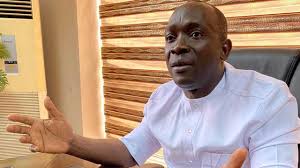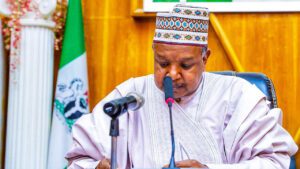
NECA warns against making CSR mandatory
The Director-General of the Nigeria Employers Consultative Association (NECA), Adewale Oyerinde has issued a warning on the consequences of legislating on Corporate Social Responsibility (CSR).
While speaking to journalists on the sidelines of the Third Nigeria’ Employers Summit on “Economic Renaissance Harnessing Government Reforms and Private Sector Agility,” in Abuja on Tuesday, Oyerinde said, “I hear the representative of the speaker saying he’s going to declare open a public hearing on CSR.”
“It’s not a part of the issues we had. The House wants to legislate on CSR to make it compulsory. It is corporate social responsibility for God’s sake.
“It’s the prerogative of the business to say this is what I want to do. So you don’t legislate it. It’s another tax which we are also going to contest.”
Speaking further on the minimum wage, he noted that any approval of new national minimum wage that is above N62,000 the government and organised private sector agreed upon, will cause a crisis.
He lamented that it was painful to accept the N62,000 and that it was based on a certain premise.
When queried on whether he was satisfied with the waiting game on the national minimum wage, he said, “There’s no waiting game and I think we have to put all this in context. And all this misinformation, I think we are just creating unnecessary tension. There’s a process and we don’t seem to be on the same page. There’s a process of the Tripartite Committee sitting to recommend the national minimum wage.
“And that process, once the minimum wage, the figures are recommended, we pass it to the president, which we have done. And the president is the sovereign. They have to pick the recommendation of the committee, do I accept it or I don’t accept it.
“The President still remains the sovereign. That position is not contested. The employers cannot contest it.
“Labour cannot contest it. It is the sovereign that should pick a figure, then pass it to the National Assembly to go through a legislative process. That process, we can only advocate for it to be fast-tracked.
“We cannot put a gun to somebody’s head and say, look, you have to do this, it’s tomorrow, you have to do it. It doesn’t work like that. Now, for us, and we have said it and we’ll say it again openly, the 62,000 that the employers came up with, the 62,000 was based on some premise.
“It was painful conceding that we did. And it was based on a certain premise. And one of those, or two of those, or three of those is the new electricity tariff, the government has to suspend it.
“That is, one, that there should be an embargo on the introduction of new tax.
“So those are part of the conditions that we gave for us to agree on the N62,000 minimum wage. Now, if it goes above N62,000, you have created two or three different dynamics. One, you have set the tone for non compliance.
“Because if I cannot pay, I just can’t pay. Now, you have created a problem for the judiciary. Because all employees that are not satisfied, they have the right, according to the Act, to go to the National Industrial Court.
“Now, imagine 1,000, 2,000 employees, 5,000 employees across the country going to the National Industrial Court. How long will the Industrial Court take to dispense almost 5,000 cases? That is one.
“Two, you have also set in process another dangerous pattern. We already have businesses leaving now. All of us are not interrogating, where are our brothers and sisters working in those companies? Where are they? So, a figure beyond what the private sector can pay may also lead to loss of jobs.
“Now, we complain about insecurity. So, we have to put all those together. And a fundamental, lastly for me, on this minimum wage issue, a fundamental element in setting up national minimum wage that you cannot take away is the ability to pay.
“If you take away the ability to pay, then you have just set a stage for crisis,” he said.




